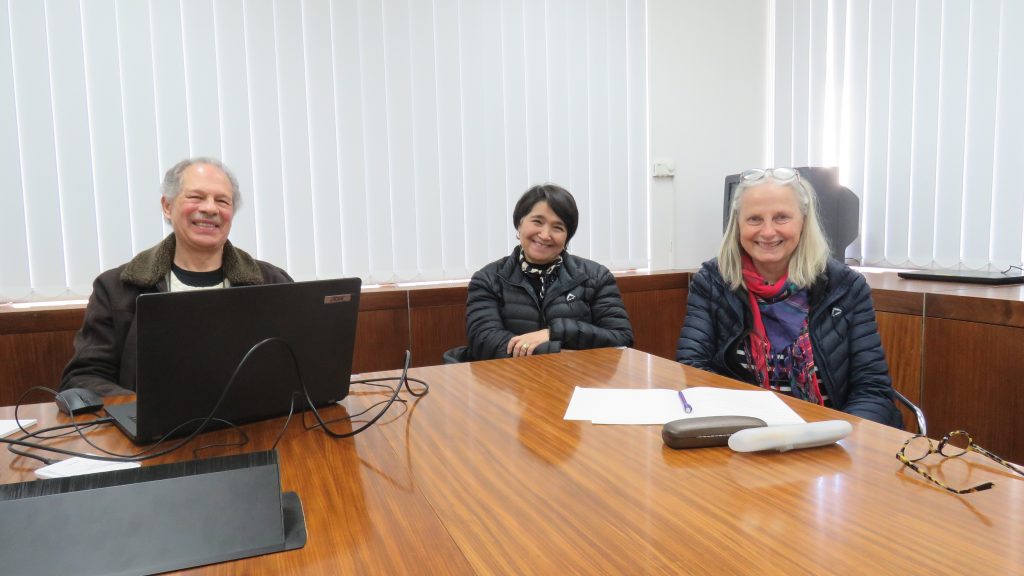On 15 August 2024 the Nico Carstens Digital Database was handed over to the Music Library at Stellenbosch University. This handover marks a significant milestone in preserving and enhancing access to the extensive works of the renowned South African musician and accordionist, Nico Carstens.

During the handover meeting, the structure of the database was thoroughly explained. Klem Carstens detailed how the information was gathered and incorporated into the collection, a project that began in 2013. The process involved collecting records, taking photographs of all items held in the Music Library’s Documentation Centre for Music (DOMUS) and systematically adding the collected information to the database.
The database is divided into two main components: the Data section, which includes sheet music and documentation, and the Music section, which contains recordings and albums. Klem Carstens organised all music files into MP3 format and created MP4 videos for TV recordings of the songs, ensuring that all data was neatly compiled and synchronised. The database is designed to be researcher friendly, featuring intuitive navigation and search functions.
Additionally, a plastic container containing music and documentation (already integrated into the digital database), was also handed over.
Nico Carstens (1926-2016) was a prolific and versatile musician whose career spanned numerous genres and formats. He composed 600 works, with Anton de Waal penning lyrics for over 300 songs. Carstens published more than 1,000 compositions and produced over 100 commercial albums, selling more than two million records in South Africa alone. His influential work, Zambezi (1953), was recorded by 56 orchestras worldwide. Carstens also appeared in Afrikaans films and received several prestigious awards, including the Sarie Award, ATKV Award, SAMA, and an honorary accolade from the South African Academy for Science and Arts.
Founder of the Nico Carstens Orchestra in 1950, Carstens toured extensively across South Africa, and performed in various African countries and Europe. His South African engagements included TV and radio broadcasts, dance parties, agricultural shows, and music festivals, among others. He collaborated with notable musicians like Ray Phiri and his later works blended light Afrikaans music with Afro-jazz and Cape Malay influences.
The Nico Carstens collection donated to Stellenbosch University in 2012, encompass a wide array of paper documents and audiovisual materials, ensuring that Carstens’ rich legacy continues to be accessible for future research and appreciation.




Theresa Schoeman


